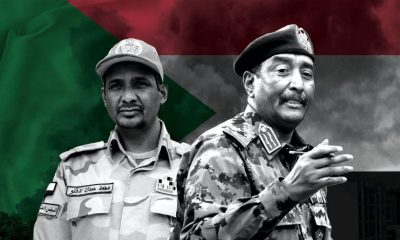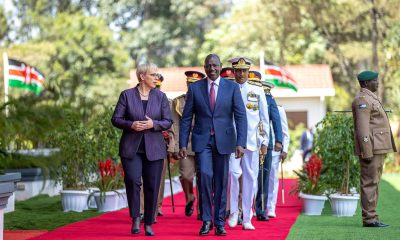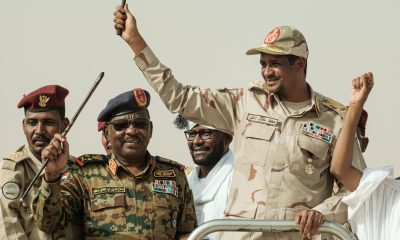Africa
Kenya Accuses UAE, Egypt and Iran of Fueling Sudan Conflict
This represents one of the most forthright geopolitical accusations Kenya has made in recent years.
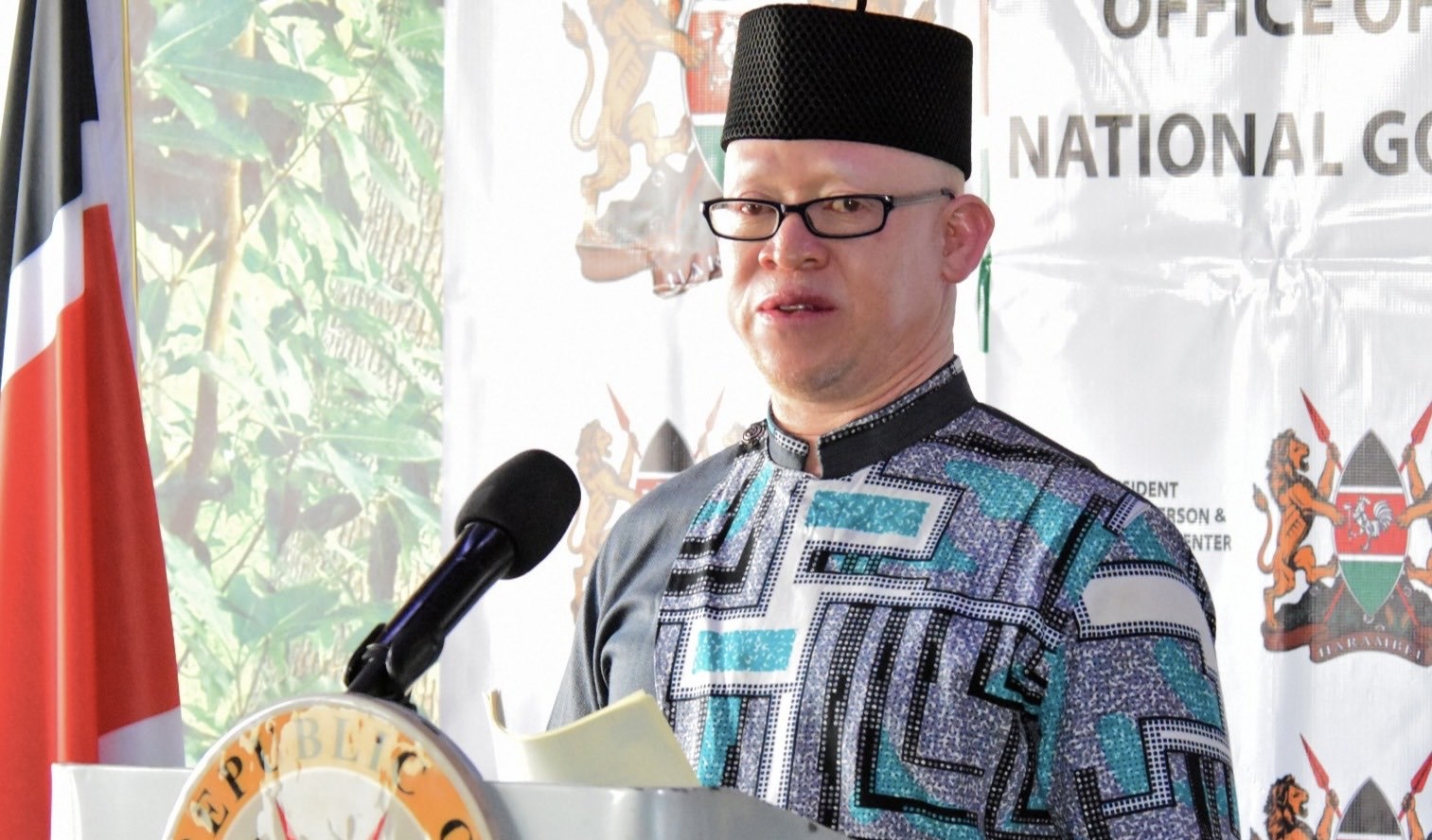
Kenya has directly accused three major regional powers of prolonging Sudan’s devastating civil war through their backing of opposing factions.
During a press briefing on Monday, Government Spokesperson Isaac Mwaura made the explosive allegation that Egypt and Iran are supporting the Sudanese Armed Forces (SAF), while the United Arab Emirates is backing the rival Rapid Support Forces (RSF).
This represents one of the most forthright geopolitical accusations Kenya has made in recent years.
Mwaura’s statement came in response to a Sunday evening investigative report by NTV titled “Brothers in Arms,” which allegedly traced Kenyan ammunition supplies to Sudan and questioned Kenya’s relationship with RSF commander General Mohamed Hamdan Dagalo, who is perceived as having close ties to President William Ruto.
The Kenyan government spokesperson also claimed that mercenaries from countries including Russia and Colombia were undermining peace efforts and deepening regional instability.
This accusation adds another layer to the complex web of international involvement in Sudan’s conflict.
Faced with questions about its own neutrality, Kenya has sought to position itself as a genuine peacemaker in the region.
Mwaura reminded journalists of Kenya’s historical role in Sudanese peace processes, dating back to the 2005 Comprehensive Peace Agreement and extending through post-2019 transition efforts under African Union and IGAD auspices.
President Ruto has indeed chaired IGAD-led mediation efforts and hosted both warring generals in Nairobi.
The Kenyan government has also pledged $2 million in humanitarian aid for Sudan.
However, the reality appears more complex than Kenya’s official narrative suggests.
The document reveals several uncomfortable truths that undermine Kenya’s claims of effective neutrality:
- The Sudanese army and several regional players have quietly rejected Ruto’s role in the peace process
- IGAD subsequently dropped Kenya from its lead mediator position without public announcement
- The promised $2 million in humanitarian aid remains undisbursed
These developments suggest that Kenya’s influence as a mediator may be more limited than its government claims, and that its perceived proximity to certain actors in the conflict has compromised its standing as a neutral broker.
Kenya’s public accusations against Egypt, Iran, and the UAE mark a significant escalation in diplomatic tensions across the region.
By naming these countries explicitly, Kenya has abandoned the typical diplomatic discretion that usually characterizes such sensitive geopolitical matters.
The accusations also highlight the proxy nature of Sudan’s conflict, where regional and international powers are backing different factions, potentially prolonging the suffering of the Sudanese people.
This pattern of external interference has become a recurring theme in conflicts across the Horn of Africa and the broader Middle East.
Sudan’s civil war has created one of the world’s worst humanitarian crises, with millions displaced and thousands killed.
The conflict pits the Sudanese Armed Forces against the Rapid Support Forces in a struggle that has torn the country apart since fighting erupted in April 2023.
The international community’s response has been fragmented, with different powers backing different sides based on their strategic interests rather than focusing on genuine conflict resolution.
Kenya’s accusations, while potentially accurate, also serve to deflect attention from questions about its own role and effectiveness in mediating the crisis.
Kenya’s bold accusations may represent either a genuine attempt to expose foreign interference in Sudan or a defensive move to address criticism of its own involvement.
Regardless of the motivation, the public nature of these allegations is likely to complicate already tense regional relationships and may further undermine peace efforts.
The tragedy remains that while regional powers engage in diplomatic finger-pointing and proxy competition, the people of Sudan continue to suffer the consequences of a conflict that shows no signs of abating.
Whether Kenya’s accusations will lead to meaningful accountability or simply add another layer of complexity to an already intractable situation remains to be seen.
The international community must now grapple with how to address these allegations while maintaining focus on the urgent humanitarian needs of the Sudanese people and the imperative of finding a sustainable path to peace.
Kenya Insights allows guest blogging, if you want to be published on Kenya’s most authoritative and accurate blog, have an expose, news TIPS, story angles, human interest stories, drop us an email on [email protected] or via Telegram
-

 Business4 days ago
Business4 days agoCooking Fuel Firm Koko Collapses After Govt Blocks Sh23bn Carbon Deal
-

 Business3 days ago
Business3 days agoABSA BANK IN CRISIS: How Internal Rot and Client Betrayals Have Exposed Kenya’s Banking Giant
-

 Politics2 weeks ago
Politics2 weeks agoYour Excellency! How Ida’s New Job Title From Ruto’s Envoy Job Is Likely to Impact Luo Politics Post Raila
-

 Business2 weeks ago
Business2 weeks agoMinnesota Fraud, Rice Saga, Medical Equipment Deal: Why BBS Mall Owner Abdiweli Hassan is Becoming The Face of Controversial Somali Businessman in Nairobi
-

 News2 weeks ago
News2 weeks agoKenya Stares At Health Catastrophe As US Abandons WHO, Threatens Billions In Disease Fighting Programmes
-

 Americas2 days ago
Americas2 days agoEpstein Files: Bill Clinton and George Bush Accused Of Raping A Boy In A Yacht Of ‘Ritualistic Sacrifice’
-
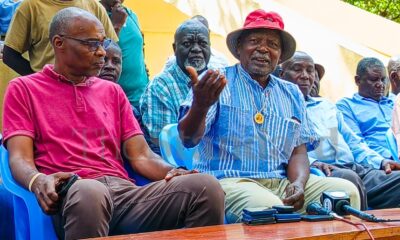
 Politics2 weeks ago
Politics2 weeks agoJaramogi Clan Tells Raila Jr, Winnie Against Disrespecting Their Uncle Oburu, Warns of Curses
-

 News2 weeks ago
News2 weeks agoDCI Probes Meridian Equator Hospital After Botched Procedure That Killed a Lawyer


